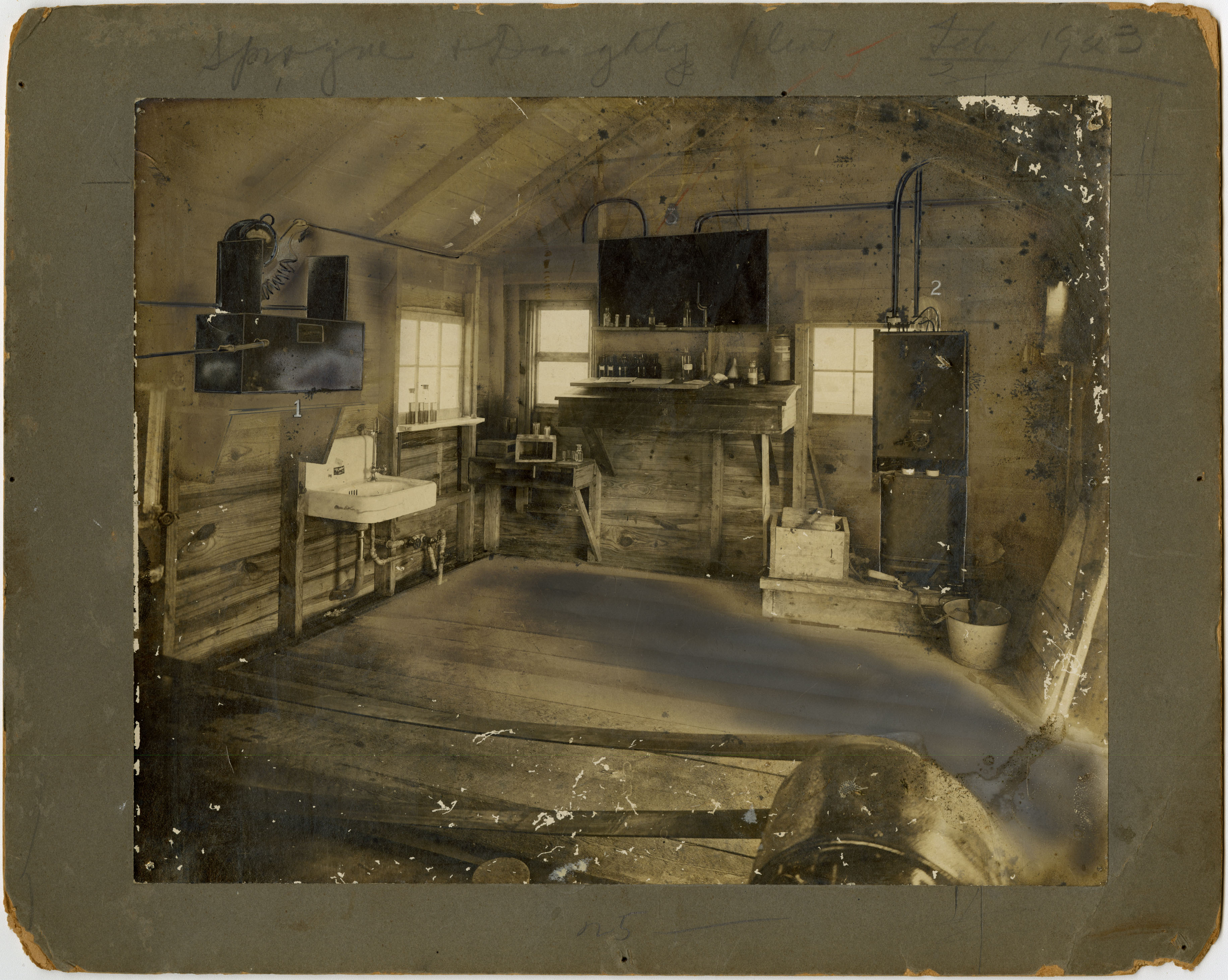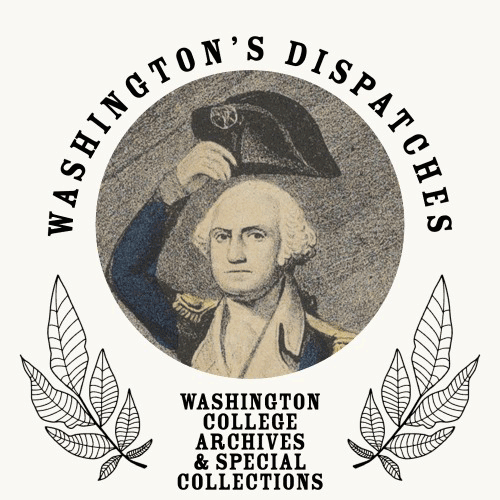William Firth Wells and Mildred Weeks Wells
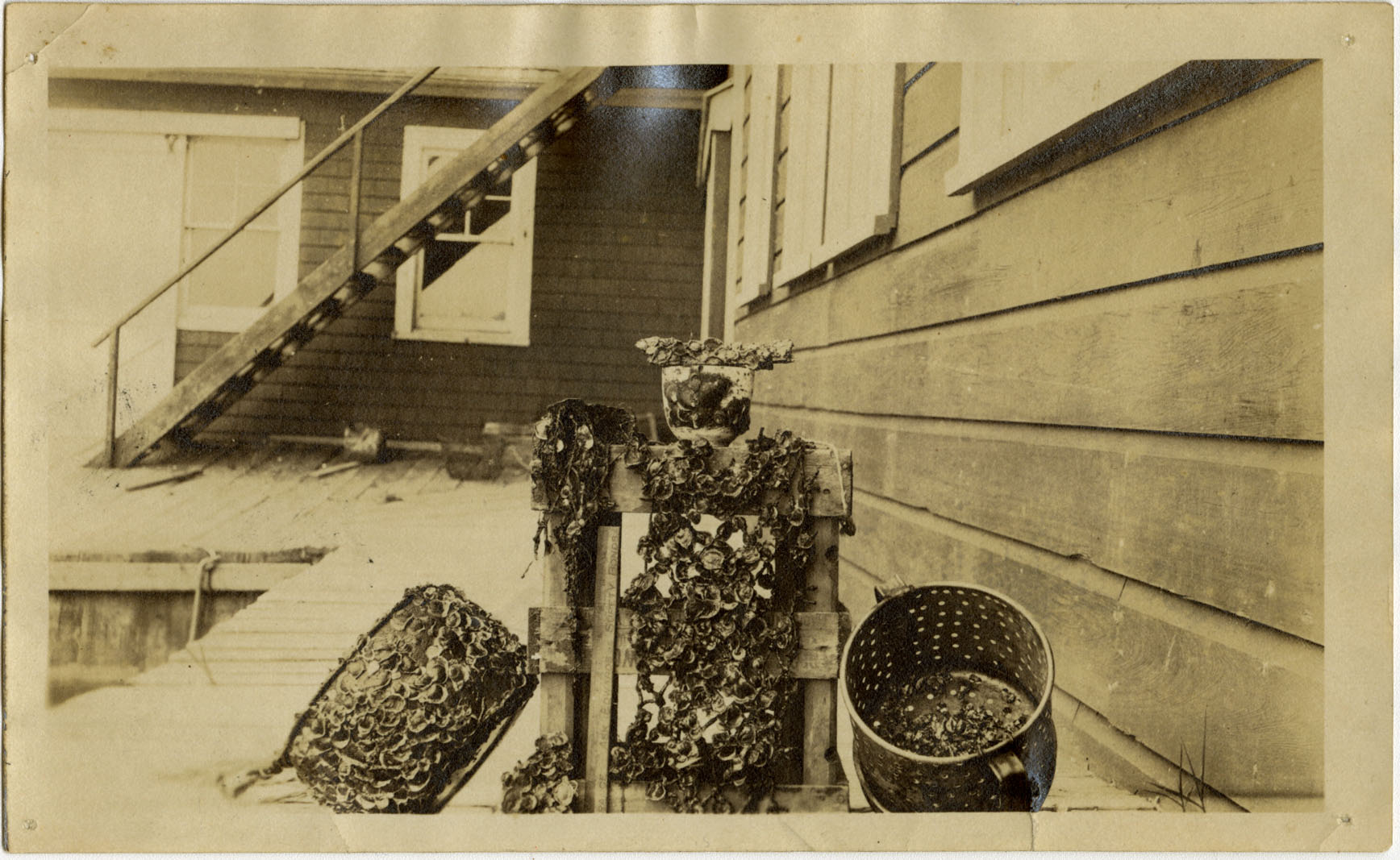
Now that we are in the midst of the cold and flu season, I am reminded of the William Firth Wells papers. In late 2019, the processing of the Wells papers began, but 2020 put most things on hold, including finishing this collection.
When we were allowed back into the library, I could pick up where I left off, and what began as an interesting collection on oystering and the health of oyster beds soon reflected our new reality. William Firth Wells and his wife Dr. Mildred Weeks Wells focused their scientific careers on Public Health. Wells had taught at the Harvard University School of Public Health and throughout his career looked at water and milk sanitation as well as the “Purification of Polluted Oysters.” But as I processed deeper into the collection, I found pamphlets like “Airborne Contagion and Air Hygiene. An Ecological Study of Droplet Infections” and other articles co-written with his wife Dr. Mildred Weeks Wells entitled “Air-Borne Infection” and “Measurement of Sanitary Ventilation” from the 1920s. All this showed an eerie parallel with current events.
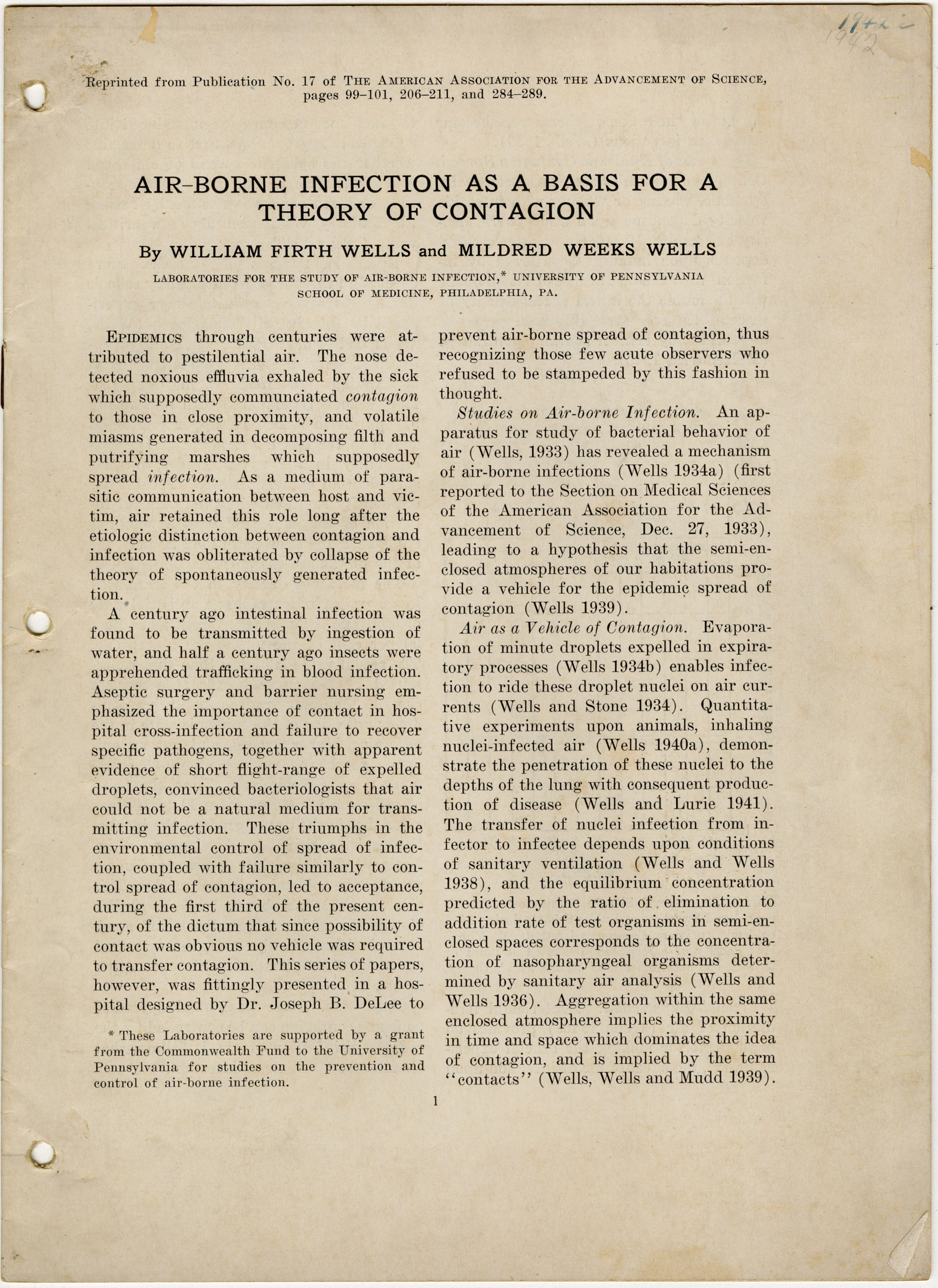
Much of the collection is the work of William, but as it was processed, the work of his wife Mildred stood out. While her husband mainly concerned himself with water sanitation and oystering, Mildred was the specialist in airborne and infectious diseases. Mildred Washington Weeks Wells received her undergraduate degree from The University of Texas Medical Branch in 1911. Her decade-long study on indoor ventilation related to the spread of disease, published in the 1940s, shows that this research is still relevant today.
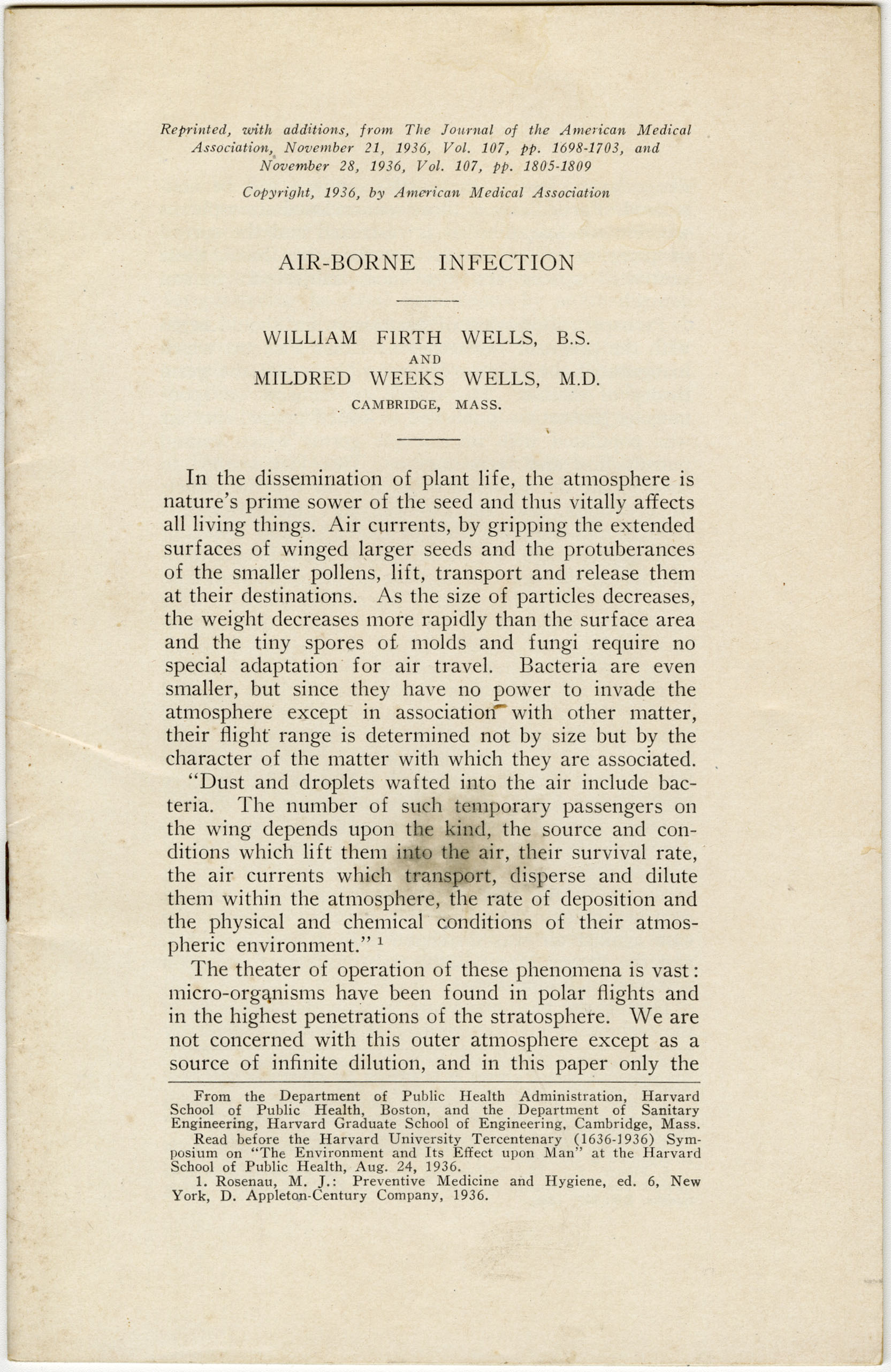
At first glance, it seemed as though the Wells' work on oystering would make this a valuable collection for the Eastern Shore, but perhaps their work on Public Health should be re-examined in the wake of the COVID-19 Pandemic.
